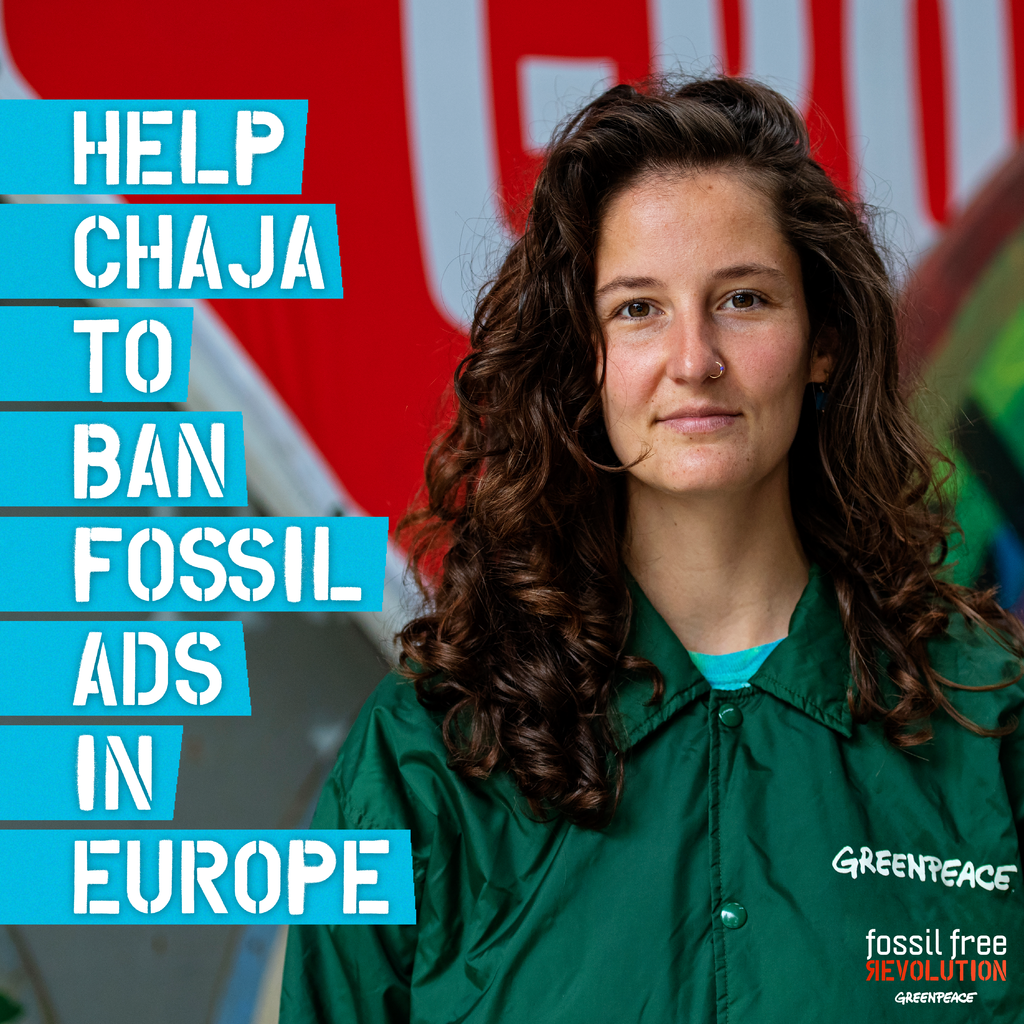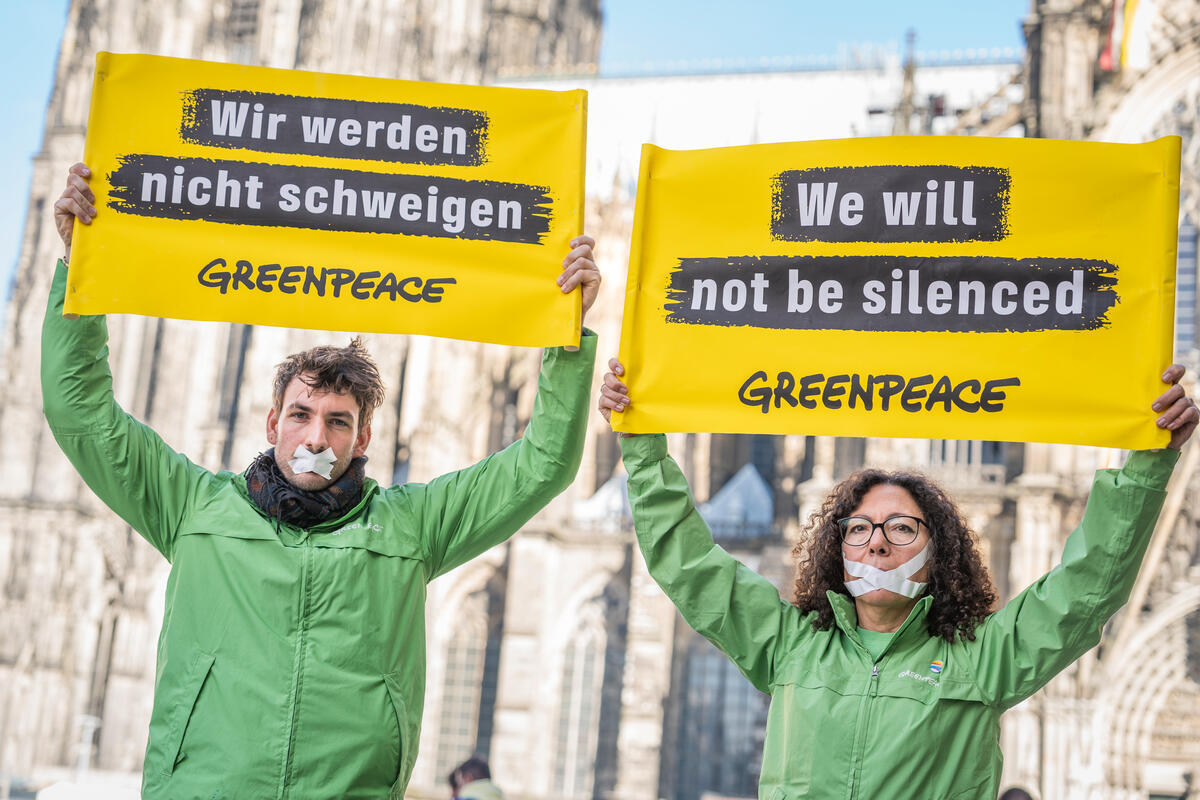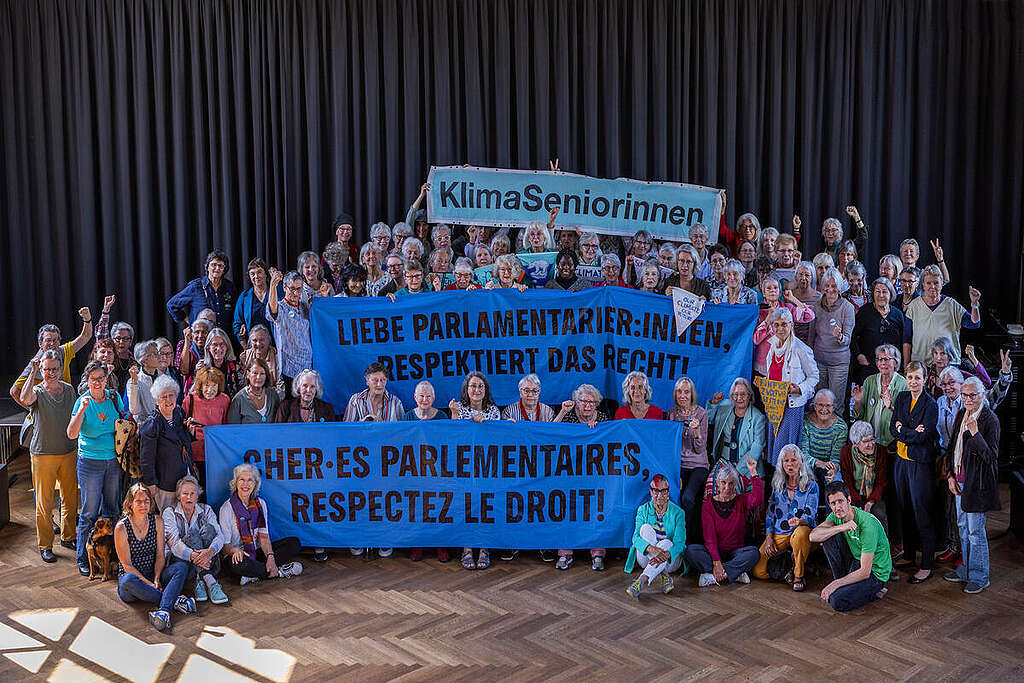Luxembourg, 4 October – Today, Greenpeace Luxembourg – together with more than 20 organisations [1] – launched the European Citizens’ Initiative (ECI) [2] “Ban on fossil fuel advertising and sponsorship”. The aim of the citizens’ initiative is to ban all advertising of fossil fuels and fossil-fuelled air, road and water transport (except for public transport services) in the European Union. The citizens’ initiative also advocates for a ban on sponsorships by companies active in the fossil energy sector. The organisations hope to collect one million signatures so that the EU Commission will have to address the issue. The citizens’ initiative runs until 3 October 2022.
Fossil fuel companies, carmakers, airlines and maritime companies use advertising and sponsorships as a smokescreen to distract attention from their climate-wrecking business, while their activities continue to plunge us deeper into the climate and human rights crises. This has to stop.
“Our latest research shows that fossil fuel companies consistently mislead the public in an effort to delay climate action,” said Frank Thinnes, Climate and Energy campaigner at Greenpeace Luxembourg. “Banning the advertising of fossil fuels would be a concrete step to put an end to this industry that threatens the future of humanity and the planet. It is time for citizens across Europe to take a stand to put an end to the age of oil, coal and gas.”
In Luxembourg, too, sports clubs and cultural events are sponsored by fossil fuel companies. Through advertising and sponsorships, these companies sneak into our daily lives by spending money on creating a better public image for themselves. Given the catastrophic damage that fossil fuels are causing to our planet, it is irresponsible to continue to promote the dirty business of the biggest climate polluters, especially since they have no realistic plans to meet the commitments of the Paris Agreement.
“Big polluting companies should have no place in sport or cultural sponsorship,” added Frank Thinnes. “They only seek to align with popular organisations and events to distract from the awful damage their products cause.”

Today Greenpeace Netherlands also published the report “Words vs. Actions: The Truth Behind Fossil Fuel Advertising“, an analysis of fossil fuel advertising conducted by DeSmog. The investigation assessed over 3,000 adverts published on Twitter, Facebook, Instagram and Youtube since the launch of the European Green Deal, from December 2019 to April 2021. The six companies analysed were Shell, Total Energies, Preem, Eni, Repsol and Fortum.
The report found that an average of 63% of the companies’ assessed advertisements were greenwashing: misleading consumers by failing to accurately reflect the companies’ business and promoting false solutions such as fossil gas as clean energy alternatives. For the three worst offenders – Shell, Preem and Fortum – 81% of each company’s adverts were classified as greenwashing.
If the ECI www.banfossilfuelads.org reaches one million verified signatures in the EU in the one-year timeframe allowed, then the European Commission is legally obliged to respond, and may consider adopting the demands of the civil society into European law.
“The EU has already implemented a ban on the advertising of cigarettes and tobacco,” concluded Frank Thinnes. “A ban on fossil fuel advertising is only logical, because the damage caused by fossil fuels is far greater.”
Notes:
[1] The organisations which support this European Citizens’ Initiative are: ActionAid, Adfree Cities, Air Clim, Avaaz, Badvertising, BoMiasto.pl, ClientEarth, Ecologistas en Acción, Europe Beyond Coal, FOCSIV, Food and Water Action Europe, Friends of the Earth Europe, Fundación Renovables, Global Witness, Greenpeace, New Weather Institute Sweden, Plataforma por un Nuevo Modelo Energético, Reclame Fossielvrij, ReCommon, Stop Funding Heat, STPC, and Zero.
[2] For more information about the European Citizens’ Initiative, “Ban Fossil Fuel Advertising and Sponsorships”, visit www.banfossilfuelads.org. A European Citizens’ Initiative (or ECI) is a petition that is officially recognised by the European Commission, and pre-approved by them. If an ECI reaches one million verified signatures in the timeframe allowed, then the European Commission is legally obliged to respond, and may consider making the demands into European law.



